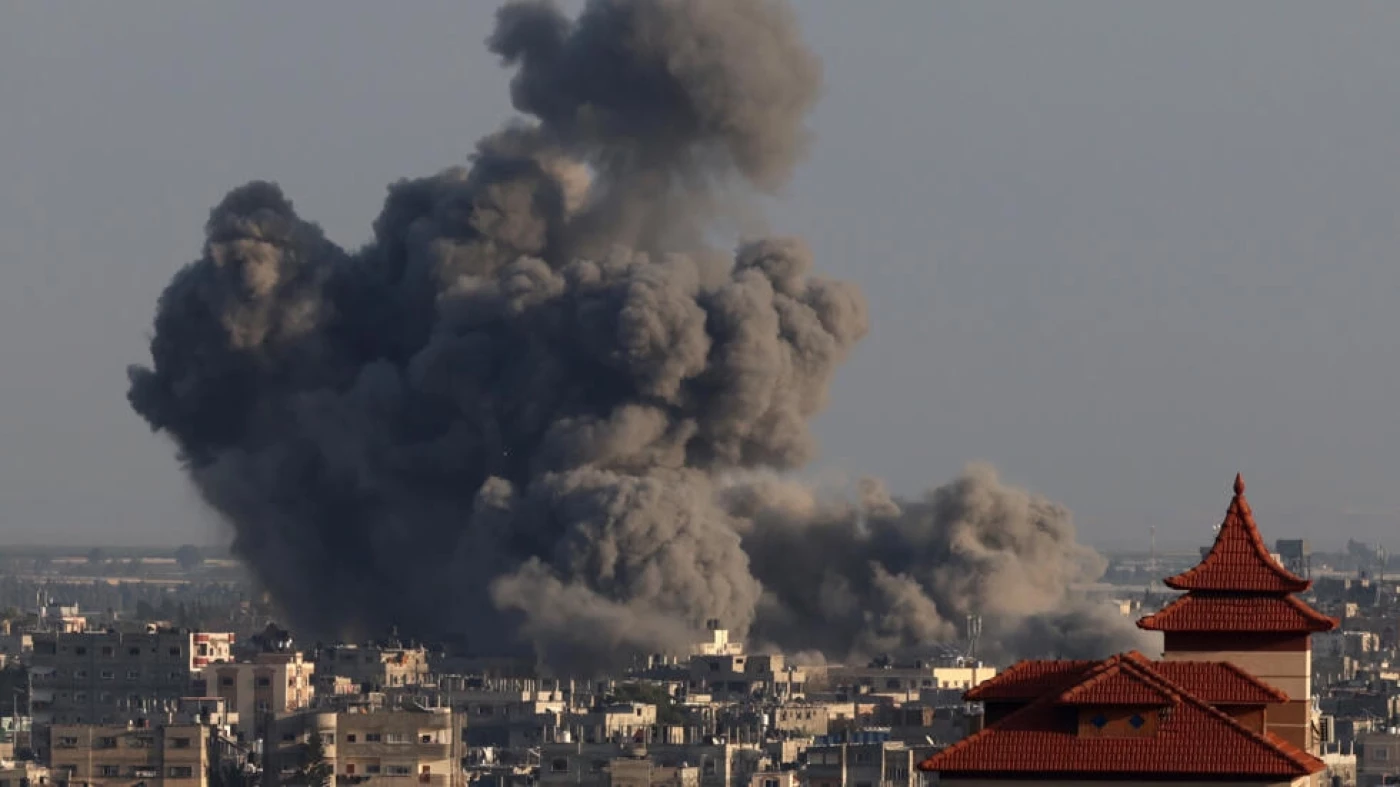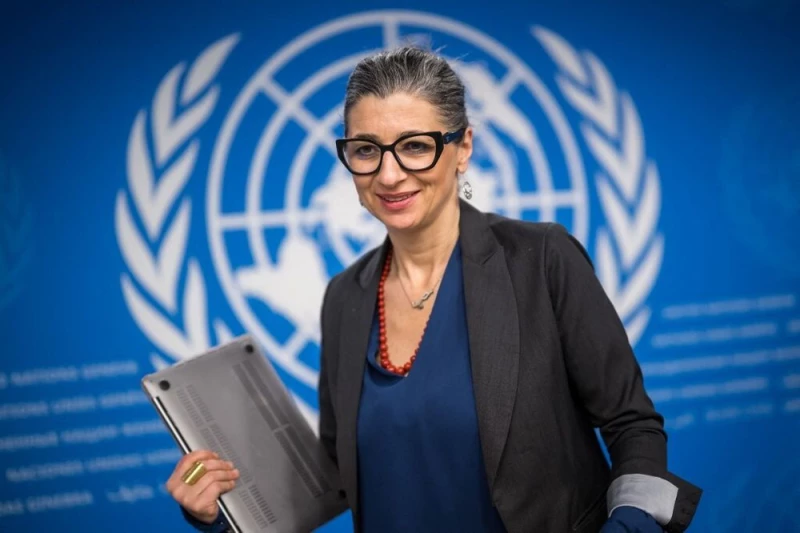Israeli air strikes and ground operations were focused Thursday on the Gazan city of Khan Yunis, where the UN said nine people were killed by tank shelling at one of its shelters the day before.
The deadly incident came after the Israeli army said it had encircled the city, where footage released by the military showed soldiers engaged in urban combat amid ruined buildings.
Hamas's press office also reported fierce clashes in the centre and west of Khan Yunis, while its health ministry counted multiple deaths overnight from strikes in the city and elsewhere in the territory.
It said four children were killed in the Nuseirat camp in an early morning bombardment on Thursday.
Wednesday's attack on the UN shelter for displaced people saw the site hit by two tank rounds, killing nine and injuring 75, said Thomas White, the Gaza head of the UN agency for Palestinian refugees, UNRWA.
UNRWA chief Philippe Lazzarini said the number of dead was likely to rise.
"Once again a blatant disregard of basic rules of war," Lazzarini said on the social media platform X, adding that the compound had been clearly marked as a UN facility and its coordinates had been shared with Israeli authorities.
James McGoldrick, interim UN humanitarian coordinator for the Palestinian territories, told reporters that "buildings were ablaze" at the shelter in the aftermath of the strike.
"Many people are trying to flee the scene but unable to do so," he said.
When asked about the incident, the Israeli army told AFP "a thorough review of the operations of the forces in the vicinity is underway", adding it was examining the possibility that the strike was a "result of Hamas fire".
The United States condemned the attack, with State Department spokesman Vedant Patel saying "civilians must be protected and the protected nature of UN facilities must be respected".
- 'No military solution' -
The Gaza war began with Hamas's unprecedented October 7 attack, which resulted in the deaths of about 1,140 people in Israel, mostly civilians, according to an AFP tally based on Israeli official figures.
Militants also seized 250 hostages, and Israel says around 132 remain in Gaza. That number includes the bodies of at least 28 dead hostages, according to an AFP tally based on Israeli figures.
In response, Israel has carried out a relentless military offensive that has killed at least 25,700 people in Gaza, about 70 percent of them women and children, according to the health ministry in the Hamas-run territory.
In the southern border town of Rafah on Wednesday, Palestinians inspected the damage after a strike on a mosque, which had been reduced to rubble.
"We headed to Rafah based on (Israeli) instructions that it is a safe zone, only to discover that it is just like other areas," Mohammed Barbakh, who had been displaced from Khan Yunis, told AFP.
The government of Prime Minister Benjamin Netanyahu has faced mounting calls for a ceasefire, with domestic pressure intensifying after 24 soldiers were killed Monday in the army's deadliest single day since it launched ground operations in Gaza.
Citing Israeli officials, the New York Times said 21 of those soldiers were killed in an operation to demolish part of a Palestinian neighbourhood in order to create a "buffer zone" inside Gaza along the Israeli border.
In Tel Aviv, Israeli protesters carried a banner saying "Stop the bloodshed" and blocked a road during a demonstration to demand a deal for the release of the hostages held by Hamas.
"We came to say to the government, 'It's enough.' We want all the hostages back home, we want a ceasefire now," said protester Sapir Sluzker Amran.
"There is no military solution, only a diplomatic solution -- only agreements will bring the hostages back."
Netanyahu, however, has been adamant the war will continue, telling parliament on Wednesday that the fighting would persist until the "aggression and evil" of Hamas were destroyed.
"This is a war for our home," he said.
- Hostage talks -
US President Joe Biden's Middle East envoy Brett McGurk was in the region for talks aimed at brokering a new deal to free the remaining captives in exchange for a pause in fighting.
A Palestinian source familiar with the talks said a Hamas delegation had travelled to Cairo on Tuesday to meet Egypt's intelligence chief and discuss new ceasefire proposals.
Egypt and Qatar have acted as mediators in the conflict, including in November, when a brief truce agreement led to the release of 105 hostages.
But Netanyahu was allegedly caught on tape telling hostages' families this week that Qatar's mediation was "problematic", blaming it for funding Hamas.
The Gulf state said it was "appalled" at the remarks, which "if validated, are irresponsible and destructive to the efforts to save innocent lives".
The Gaza war has spurred fears of a wider escalation, with a surge in violence involving Iran-backed Hamas allies across the Middle East.
Yemen's Iran-aligned Huthi rebels fired three missiles at two merchant ships in the Red Sea in their latest attack in the commercially vital waterway, with the White House saying one missile missed its target and a US Navy destroyer shot down the other two.
The Huthis later confirmed their responsibility for the attack, vowing to continue targeting ships despite repeated US and British strikes against them.



 Facebook
Facebook
 LinkedIn
LinkedIn
 Telegram
Telegram
 X
X


